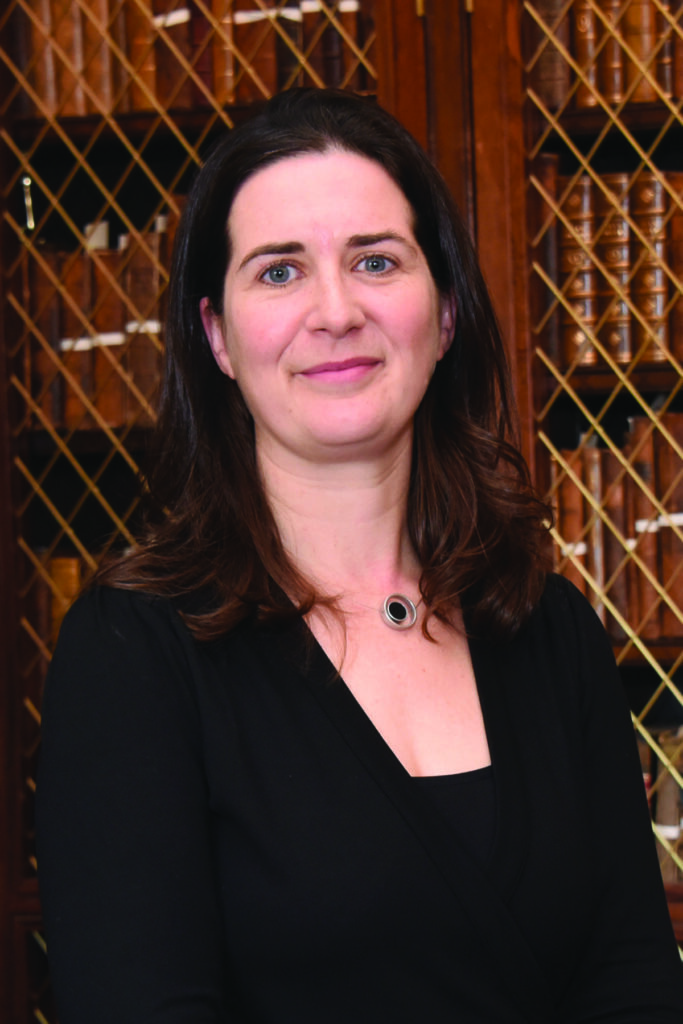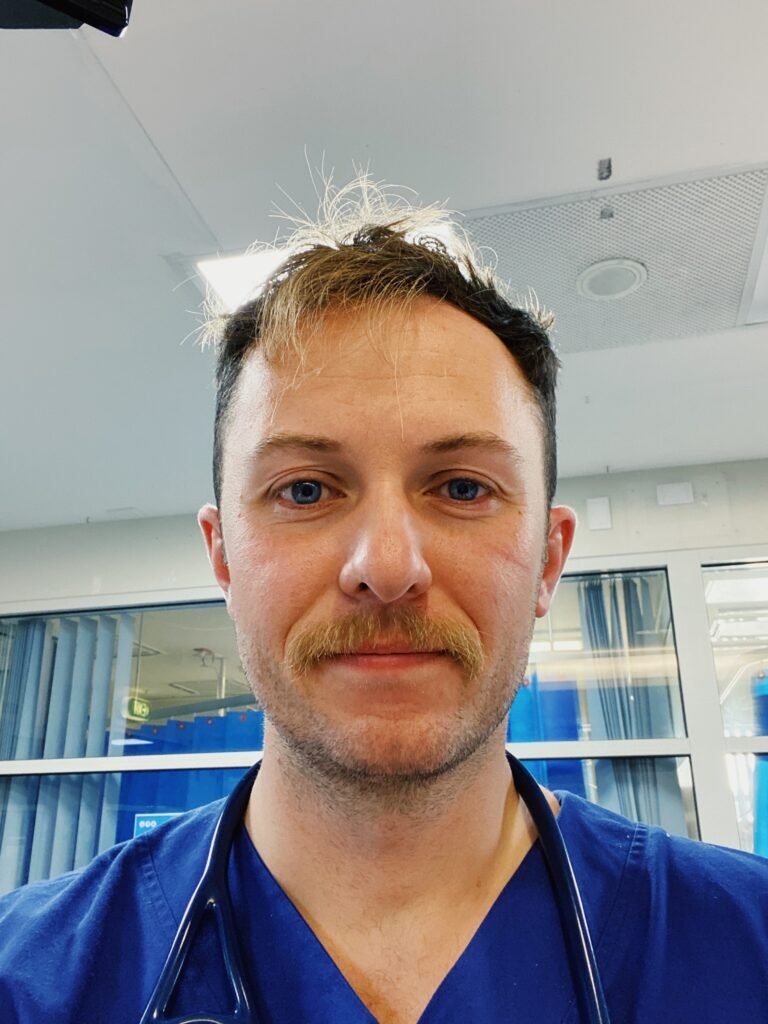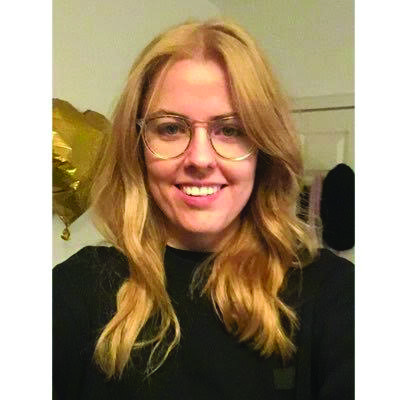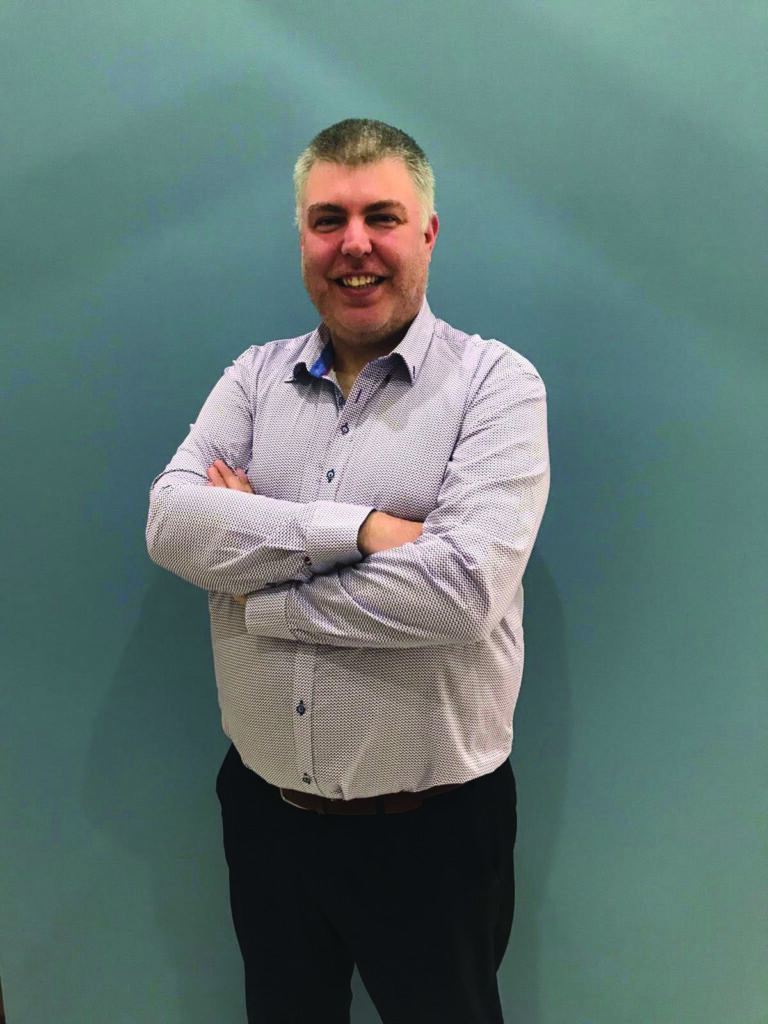How will the pandemic impact Irish doctors’ plans to travel abroad for work or to return home? David Lynch looks at trends and reports on recent experiences of Irish doctors working across the globe
Most observers agree that the inability of the health system to retain Irish doctors has led to levels of emigration that have resulted in a medical workforce crisis.
One consequence of this recruitment and retention dilemma is that, at this moment around the globe, there are many Irish doctors working at the frontlines of the pandemic far away from Ireland.
The difficulties of living long distances from family and friends is an experience familiar in the history of Irish emigration; however, there are some unique personal and professional challenges to living and working abroad during a global pandemic (see panel).

How the global Covid-19 crisis will influence future emigration patterns for Irish doctors is yet to be seen, but research has already begun in the area.
The Hospital Doctor Retention and Motivation (HDRM) project is a four-year research project (2018-2021) hosted by the RCPI and funded by the Health Research Board (HRB) Emerging Investigator Award.
Since the onset of the pandemic, the HDRM team has conducted interviews to see how the Covid-19 crisis has impacted Irish doctors living abroad and those planning a move.
“As part of the HRB-funded HDRM project, we interviewed 48 doctors in July, including doctors who had returned to Ireland from overseas and those doctors whose migration plans had been altered by Covid-19,” Dr Niamh Humphries (PhD), Reader in Health Systems Research and part of the RCPI HDRM team, told the Medical Independent (MI).
Findings from these interviews and research are expected to be published in the coming months. The HDRM aims to use the findings to help Irish policy-makers better understand how Covid-19 impacted the working conditions, working lives and career plans of hospital doctors in Ireland.
According to the HDRM website, initial interviews had highlighted how Covid-19-related innovation in the health system had given respondents hope that some of the underlying problems in the system might be addressed.
Migration
“It’s difficult to say what impact the pandemic will have on doctor migration in the longer term, but in the short-term, Covid-19 has presented plenty of challenges for emigrant doctors, returning emigrant doctors and for those doctors who had been planning on emigrating this year,” Dr Humphries told MI.
“As borders have closed, flights have been cancelled and quarantine rules imposed, the logistics of emigration have become far more difficult.
“Although exemptions can be made for doctors, as essential workers, international travel is not as easy in 2020 as it was in 2019.
“This makes life more difficult for those doctors who wish to return home, or to emigrate.
“It also complicates things for emigrant doctors, no longer sure when they can next visit home.”
The longer-term impact of the current pandemic on Irish doctors’ plans for emigration is yet to be seen.
“It is difficult to say how the pandemic will impact on doctor emigration from Ireland in the longer term,” said Dr Humphries.
“But our research with hospital doctors has consistently highlighted that good working conditions are key to doctor retention. I would imagine that this will remain true during the Covid-19 pandemic.”
Dr Humphries said that doctors need sufficient support, such as adequate staffing levels at work “to enable them to do their jobs properly”.
“They also need to have a work-life balance which allows them to manage their commitments outside work alongside their professional commitments at work.”
Representation
Mr Anthony Owens, IMO Director of Industrial Relations, Consultant and Non-Consultant Hospital Doctors, told MI “we train people for export, import new people for one-to-three years, fail to offer them a clear career path so they leave, and the cycle continues”.
In terms of what policy changes could be implemented to alleviate this situation, Mr Owens said that there should be expanded internship placements to provide a larger supply of doctors, with consequent increases in positions as those doctors move through their careers.
“Encourage Irish-trained doctors to remain through the provision of competitive remuneration and improved working conditions, and for doctors who emigrate into Ireland after medical school, to allow them the opportunity to compete for training positions through a change in the Medical Practitioners Act,” he added.
“It tells a tale that so many of the doctors who have worked in our system, and who know our system, voted with their passports and left the system.”
A union spokesperson told this newspaper that the IMO has discussions with “Irish doctors abroad regularly”.
The spokesperson added that he believed the IMO “knows the issues generally that they face and what they experience”.
In terms of specific challenges for Irish doctors living abroad during the pandemic, the spokesperson said that many “are concerned about getting home, and about the lack of capacity and investment [in the Irish health service], which hobbled us even before this”.
As regards Irish doctors who did return to Ireland at the beginning of the pandemic, the IMO spokesperson said one main issue for the group “is a lack of training positions and the fact that many of them are on fixed-term contracts that are not recognised for career progression”.
Retention
The Medical Council created the Covid-19 register earlier this year “which was established for doctors returning to the register for the purposes of assisting the health service during Covid-19”, a Medical Council spokesperson told MI.
“This register has been extended to 31 December 2020.”
To date, 436 doctors have re-registered onto the register.
This figure consists of doctors returning to Ireland, doctors coming out of retirement and those returning to the practise of medicine from other fields.
An exact breakdown is not currently available; however, the Council spokesperson said that of the 436, it is believed approximately 50 per cent are those returning to Ireland and 50 per cent are those coming out of retirement/returning to practise medicine from another field. Not all of these doctors may be Irish, but all were previously on the Medical Council’s register.
In terms of Irish doctors currently working abroad, the information the Medical Council said it has relates to doctors registered with the Council and not Irish doctors only.
In 2020 at retention, doctors who retained their place on the register and reported being clinically active also self-declared their jurisdiction of practice. Some 1,593 doctors declared working within and outside Ireland; 3,089 outside Ireland only; and 492 did not report, “so it is unclear where exactly they were in practice” but they may be based outside of Ireland, said the Council spokesperson.
Irish doctor voices from across the globe
2020 has been an unprecedented year for all doctors in Ireland and globally. However, Irish doctors who are working away from home during the pandemic have faced unique professional and personal challenges.
The Medical Independent contacted three Irish doctors, one living in the UK the other two in Australia, to find out about their personal experiences of working so far away from home in the era of Covid-19.
“It’s been hard on my family knowing that if I had become unwell, they wouldn’t be able to help.”
Dr Fiachra Maguire

I’m from Dublin, studied in Trinity College Dublin, worked in Beaumont Hospital, Dublin, and moved to Australia after internship last July. I work at the Royal Melbourne Hospital in the General Medicine department.
What was the main push factor in your decision to work abroad?
To gain experience working in a different country with a more favourable work-life balance.
How has Covid changed your working life?
During our second wave, we quickly pivoted back to caring for Covid-positive patients, with some of us redeployed to ‘hot’ wards. Communication during this pandemic has been very challenging. FaceTiming worried families with updates is a change in practice I hope we can reverse as soon as possible.
On the other hand, as healthcare workers, we’ve been lucky to maintain much-needed social contact with friends and colleagues. The rest of the city has been in a strict lockdown over an extended period and it’s clear that this is taking a toll.
Has Covid-19 impacted your relationship with Ireland?
It’s been difficult to stay here, knowing that going home is a one-way ticket for the foreseeable future. It’s been hard on my family knowing that if I had become unwell, they wouldn’t be able to help. It’s difficult to come to terms with that powerlessness.
Do you intend to return to Ireland? Has the pandemic impacted these considerations?
The pandemic has tipped me towards staying put for the moment, with our state and hospital offering us increased job security in what is otherwise a very insecure time for many workers. Ireland has some way to go in reducing consultant vacancies and implementing working hours for junior doctors comparable to Australia. These both represent risks to patient safety and the pandemic has highlighted that they need resolution urgently.
Ireland is still home and the opportunity to care for your own is something that is likely to attract me back at some point in my life.
“My cycle commute through central London felt like a scene out of ‘28 Days Later’. My sister is a nurse in Dublin and we used to answer the phone to each other with ‘hello from the frontline’.”
Dr Mary Ni Lochlainn

I am from Dublin. I studied in Trinity College Dublin and left in 2014 to come to London. I have been in London ever since, other than one year working in east Kent, less than an hour away on the train. I live in East London and am a Specialist Registrar in Geriatric and General Internal Medicine.
I work at St Thomas’ Hospital, where the geriatric wards have a gorgeous view of the Thames, Big Ben, and the London Eye. I am currently on an OOPR, as they are called here, which means ‘Out of Programme on Research’. I am doing a PhD, looking at the role of the gut microbiome in the development of sarcopenia (age-associated muscle loss).
What was the main push factor in your decision to work abroad?
I was influenced by the consultants and professors who inspired me while at medical school. It seemed that almost every consultant in geriatric medicine I came across had spent time training in the UK, within the National Health Service (NHS). Not least Prof Rose Anne Kenny, who was (and remains) a mentor to me.
I was also attracted to the nature of the NHS, with free healthcare available to all. I wanted to experience working within that model. Lastly, the ability to stay in one place was a very appealing factor about working and training in the UK. I didn’t think the Irish training model, which involves moving around the country every year for the guts of a decade, was a fair ask of my partner.
So I always felt that I would spend at least some time training in the UK. However, my reasons for leaving so soon after medical school were largely personal, having lived in Dublin my whole life, and feeling like I needed a change of scenery.
I absolutely love working in the NHS… I feel very grateful for the opportunities available here, such as my NIHR [National Institute of Health Research, the health research funding arm of the NHS] Doctoral Fellowship, which funds my PhD.
How has Covid changed your working life?
I was doing my PhD full-time when the pandemic started. So I initially went back to clinical work in the hospital, and also in a high-dependency nursing home affiliated with our hospital, which had a bad outbreak. This was an intense and anxious time, particularly seeing colleagues admitted to the hospital unwell. Strangely, the pandemic quickly became a new normal, and as one SHO remarked, “every patient I see has the same thing”.
My cycle commute through central London felt like a scene out of 28 Days Later. My sister is a nurse in Dublin and we used to answer the phone to each other with “hello from the frontline”. You have to find some humour in these things.
As a huge redeployment effort came into place in London, there was an abundance of doctors in the hospital, which meant that those of us in research went back to our academic work. My PhD project was put on hold and our research department changed entirely to Covid-focused research. The pace of this research was infinitely faster than any research work I have been involved in thus far, with data analysis and paper-writing being completed in days rather than the usual weeks to months.
This was invigorating if exhausting. It was also a great insight into what large-scale collaboration can achieve. On a personal note, I celebrated my 30th birthday alone and my wedding was cancelled. I was separated from my partner for approximately three months due to worries of my bringing Covid home from work. However, my cooking improved and I taught myself some basic DIY. Ultimately, it was a privilege to be able to contribute something useful during such a testing time for society.
Has Covid-19 impacted your relationship with Ireland?
I have always remained very engaged with Ireland, reading Irish news, listening to Irish radio, following Irish healthcare Twitter accounts and travelling home relatively often. The pandemic has affected my ability to go home to see my family, with the two-week quarantine rule. It has been interesting to see the differences in the response between Ireland and the UK, with different messaging from the governments, different rules in the easing of lockdown, different media coverage, etc.
Nowhere has responded perfectly. I think it is always healthy to look elsewhere and compare, in order to improve and progress.
Do you intend to return to Ireland? Has the pandemic impacted these considerations?
Yes, I have always hoped to go back to Ireland, and still maintain that. The quality of ageing research in Ireland is a huge appeal, with TILDA (the Irish Longitudinal Study in Ageing) and the impressive new Mercer Institute for Successful Ageing (MISA) at St James’s. There is also incredible work being done in Cork and elsewhere around the country. Considering its size, Ireland really punches above its weight in the field of gerontology and geriatric medicine.
On a personal note, if I am lucky enough to have some children in the future, I would want them to speak our native language; ba mhaith liom go mbeadh Gaeilge acu. The pandemic has highlighted the importance of quality-of-life, being close to loved ones, and having a good work-life balance.
I am not sure the HSE is doing much at present to attract doctors back from abroad but I will be watching to see what happens with Sláintecare going forward, and I’m sure many others in the medical diaspora will be doing so too.
“Under normal circumstances we’d be looking forward to family coming over to meet our new arrival in the New Year. Now, the baby will likely be at least six months old before he meets his grandparents.”
Dr Niall Conroy

I am a Public Health Physician/Director of Public Health Senior Lecturer, University of Queensland, Australia. I’m originally from Dublin, but have been living in Trim for the past few years. I left Ireland in January 2020 to come to Queensland to take up my current role as Consultant in Public Health Medicine and Director of Public Health for the Wide Bay region.
What was the main push factor in your decision to work abroad?
There were three main factors for me. Firstly, despite completing higher specialist training and being entered on the specialist register, Irish public health doctors aren’t hired as consultants by the HSE. Ireland is unique in the way they treat us. I trained in public health medicine in Australia, where being a consultant at the end of training was the norm, so it was very hard to go back to a system that told me I’m worth less than other doctors.
The other attraction is that Queensland’s tropical climate means it has lots of interesting communicable diseases; that makes my outbreak control work really interesting.
And finally, Australia offers a great quality-of-life, so my wife and I wanted to enjoy the lifestyle here. We live a three-minute walk from the beach and we can do everything from whale-watching to visiting rainforests when we have free time.
How has Covid changed your working life?
As the only public health medicine consultant in my region, I’m the lead for Covid, so the pandemic has absolutely dominated my life. I frequently work seven days per week, and have still been sitting in the public health unit at 2am during some of our more difficult situations. I probably won’t get time off until the New Year, so I’m exhausted.
But I’m trying to take the positives from it. I have great state-wide colleagues and a regional health board that really values my role and my input. Our unit is using the opportunity to streamline and refine our response to outbreaks in a way that we probably wouldn’t have done were it not for Covid-19.
Has Covid-19 impacted your relationship with Ireland?
We’re definitely sad that we won’t be getting home for Christmas. I’ve lived abroad a lot and pretty much always got home in time for Christmas. We’re expecting a baby in late December, so it’s not just Covid stopping us making the trip this year. But under normal circumstances, we’d be looking forward to family coming over to meet our new arrival in the New Year. Now, the baby will likely be at least six months old before he meets his grandparents.
Also, as most of my family and friends are in Ireland, I’m keeping a very close eye on the pandemic response there. It’s been great to see my old public health colleagues in the HSE do such a great job, despite being so poorly resourced compared to other comparable countries.
Do you intend to return to Ireland? Has the pandemic impacted these considerations?
As things stand, I’d find it extraordinarily difficult to go home to a non-consultant job. I love outbreak control, but it’s very hard to do the job properly in Ireland without the team and the autonomy that comes with a consultant contract.
In the end, it will be more of a family decision, but right now I have a great job where my input is valued and my department is properly resourced. So, as things stand, it wouldn’t be work that’s pulling me home.
